
Emergency Dentist – Aurora, IL
Fast Emergency Dentistry When You Need It the Most
Are you experiencing severe dental pain that is preventing you from going about your daily life? Serious oral health problems require urgent treatment, which is exactly what our team at Grand Dental - Aurora provides. When you contact our office, we will work to schedule an appointment as soon as possible, usually the same day. For after hours emergencies, our patients have the reassurance that they can reach our dentist on call. Often the Doctor can temporize a painful situation over-the-phone with first-aid guidance.
Why Choose Grand Dental - Aurora
for Emergency Dentistry?
-
Dentist On
Call for
Emergencies -
Dental
Sedation
Offered -
Saturday
Appointments
Available
How We Treat Dental Emergencies

Dental emergencies can be stressful, but having them treated promptly by a professional can prevent further damage from occurring. Below is an overview of how our team typically handles emergency situations.
- Schedule an Emergency Appointment: You should always contact our office immediately if a dental emergency happens. Our team will schedule an appointment as soon as possible, often on the same day as the initial call.
- Perform an Emergency Exam: A detailed examination must be completed in order to identify the cause of the emergency. X-rays might need to be taken depending on the situation.
- Review Findings: The results of the emergency examination will be explained in an easy-to-understand way. The dentist will recommend appropriate forms of treatment and give an estimate of how much they will likely cost.
- Carry Out Treatment Plan: To stop the situation from growing any more severe, a personalized treatment plan will quickly be carried out.
The Most Common Dental Emergencies
There are many different kinds of dental emergencies, and some are significantly more common than others. Even if it is not clear that a situation counts as an emergency, it is typically recommended to call a dentist whenever concerning symptoms occur. Below are some situations that often require urgent care.
Understanding the Cost of Emergency Dentistry
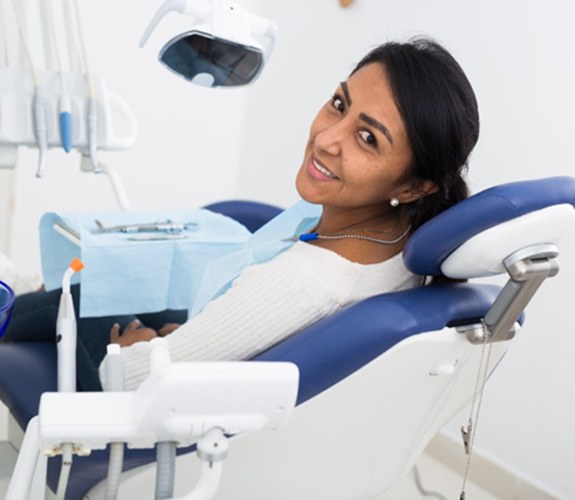
The only way we can give you an estimate of the cost of your emergency appointment is to first examine your mouth and determine the underlying problem. Then, we can develop a treatment plan to ease your pain and provide you with a lasting and effective solution to the issue. If you have any questions during your examination, don’t hesitate to ask our staff. We will be more than happy to walk you through financing options. If you have dental insurance, we can help you navigate your benefits.
Every Dental Emergency is Different
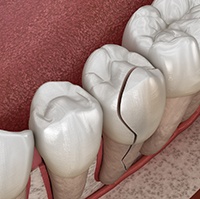
The treatment that is required to address your specific dental injury is likely to be different than another patient’s. This is why an examination is necessary. At Grand Dental – Aurora, our team will evaluate the status of your situation and determine the best way to treat the problem.
Even if you think the injury is not severe, it’s best to see us just in case, especially since certain emergencies may exist beneath the gumline and remain unseen by the naked eye.
By undergoing a careful examination of your mouth, our team can ensure that the issue is addressed properly, and we’ll also make sure that the type of treatment recommended does not hinder your wallet.
Does Dental Insurance Cover Dental Emergencies?
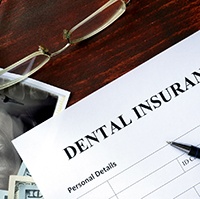
Your dental insurance company may provide coverage for a dental emergency. Most plans offer one emergency exam each year, but it’s typically not the initial appointment that incurs the majority of the cost. It is the restorative care that is required. The good news is that many insurers also provide 50-80% coverage for minor and major restorative services, so there is a good chance you’ll save when seeking treatment for a dental injury.
Other Options for Making Dental Emergencies Affordable

If private dental insurance is something you do not have, you can still avoid high expenses at Grand Dental – Aurora because we partner with CareCredit Financing. Making it easy to enroll in a low-interest or no-interest plan, you can stay within your budget while paying your treatment off through manageable monthly payments.
We also offer our Grand Advantage Plan if you prefer, as you can pay one low fee and gain access to preventive services and discounts on all other available treatment options.
Taking Care of Your Smile Can Save You Money

Visiting the dentist for an emergency appointment may not be something you want to do, so save yourself time and money by taking proper care of your smile. While you may be unable to avoid all dental emergencies, you can:
- Practice good oral hygiene at home
- Keep your six-month checkups and cleanings
- Wear a mouthguard to protect your smile
- Avoid hard, crunchy foods
- Give up bad habits like eating ice, smoking, and using your teeth as tools
- Eat a healthy diet full of nutrient-rich foods instead of those full of sugar and starch
Keys to Preventing Dental Emergencies
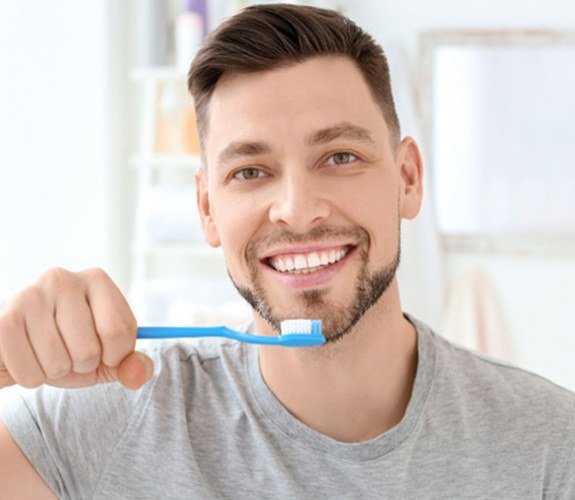
Although you can’t completely avoid dental emergencies, there are some steps you can take to prevent them. Whether it is maintaining optimal oral hygiene, visiting your dentist, or wearing proper mouth protection, you can see that smiles can remain healthy and damage-free if you commit to taking these necessary precautions to prevent dental emergencies:
Keep Your Regular Dental Appointments
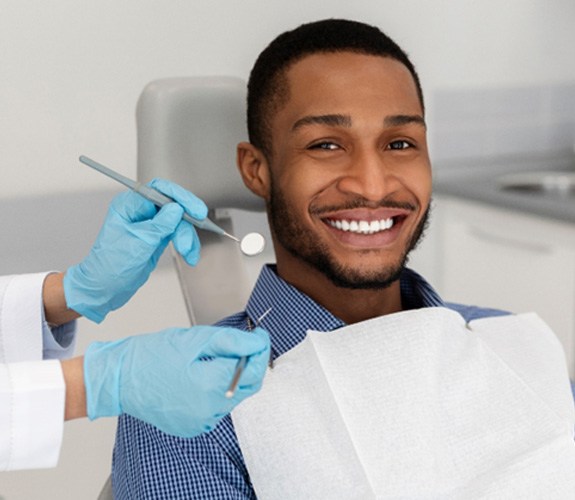
You know the importance of brushing, flossing, and rinsing each day, but twice each year, you should make sure to see your dentist for regular checkups and teeth cleanings. These visits are more than just a chance for your dental team to say hello and look inside your mouth. It gives them the chance to check for any signs of decay (even minor ones) as well as gum disease and oral cancer – a disease that if left unchecked can be fatal. By catching problems early with the help of diagnostic imaging and a trained eye, you can minimize your chances of developing a dental emergency.
Keep Brushing and Flossing

Taking care of your teeth and gums at home will help to lower your risk of serious toothache, gum disease, cavities, and even staining. Your smile deserves a chance to shine bright, so brushing your teeth twice a day with fluoride toothpaste, flossing in between your teeth before going to bed, and rinsing with antimicrobial mouthwash is the best way to keep your smile healthy and void of restorative care.
Be Mindful of What You Eat

You may be prone to eating foods that contain lots of sugar and starches, but the reality is that no matter how good a bag of potato chips or bowl of pasta sounds, it should be enjoyed in moderation. Too many of these things can lead to cavities and gum disease. This is why maintaining a healthy diet full of whole grains, leafy greens, lean meats, raw fruits and vegetables, and low-fat dairy can be most effective in reducing your chances of a dental emergency that requires restorative or surgical treatment.
Wear a Mouthguard to Protect Your Teeth
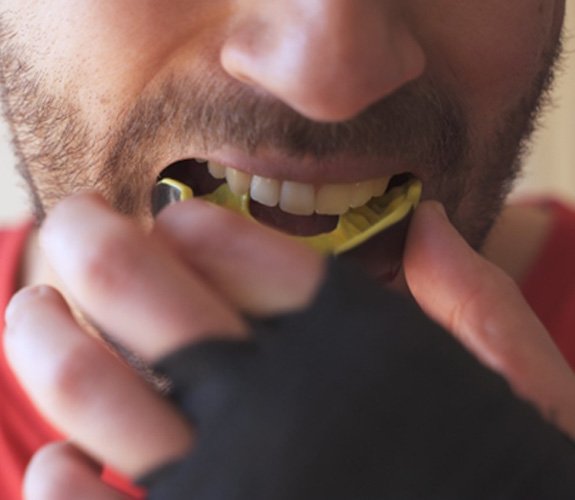
Whether you’re an avid athlete or a homebody, proper mouth protection can be one of the best investments you can make for your smile. If you play sports, this customized device can shield your teeth and soft oral tissues from extreme pressure that often results in damaged teeth or lacerated gums. But if sports are not your thing, a custom mouthguard can still be effective if you tend to grind your teeth at night. Bruxism can wear down tooth enamel, so a mouthguard can serve as a barrier to keep your pearly whites from touching throughout the night.
Use Tools to Open Packages, Not Your Teeth

Your teeth are not scissors or pliers, so they should never be used as tools. Tooth enamel may be strong, but it can still succumb to damage if you’re not careful. It’s easy to tear open a package with your teeth, but you may run the risk of chipping or breaking a tooth in the process. Instead, find the correct tool to help you open the container, envelope, or seal so that your teeth stay protected from possible damage.
Dental Emergency FAQs
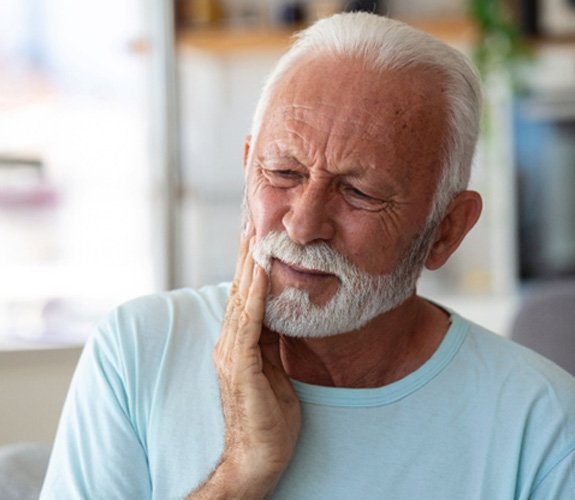
When trying to better understand the dos and don’ts of emergency dentistry, it can be overwhelming and confusing. This is why our emergency dentist in Aurora as well as our qualified team of experts have compiled answers to some of the most common questions asked by our patients. Below, individuals can find clarification on various topics and be encouraged to contact our team should they have additional questions. We understand we have not answered all inquiries here, which is why our team is ready to answer the call.
Will my toothache go away on its own?
Typically, toothaches do not go away on their own. It is usually an underlying problem that is causing the issue. This is why we strongly recommend that patients visit the dentist to ensure nothing is wrong. It’s best if we rule out any potential issues that may be causing the toothache, especially when looking to avoid more serious problems in the future. If the pain is deep within the tooth’s layer, there’s a good chance it is an infection that will require extensive treatment.
Can the emergency room remove a tooth?
It is illegal for anyone to remove a tooth who does not possess the proper education and training, even in a hospital. This is why we recommend patients visit our office because this type of dental emergency in Aurora is best treated by a licensed dental professional. In a hospital, only antibiotics and pain medications can be given, but the underlying problem can only be treated by a dentist. Also, unless evaluated by an oral healthcare expert, a person may undergo a tooth extraction but only need a root canal.
Do I need to visit for minor chips in teeth?
It’s important to know that minor chips do not heal on their own, so patients are better off scheduling an appointment quickly. Without timely treatment, the tooth can endure further damage. If there are jagged edges or the tooth is sharp, this can result in lacerations to a person’s tongue, cheeks, lip, or gums if not careful. Because there are many ways for a dentist to treat a chipped tooth, it’s best to inquire about an emergency appointment and learn which treatment method is right.
Should knocked-out teeth be placed in water?
No, it is better if knocked-out teeth are reinserted into the vacated socket. However, if this is not possible, patients should place the tooth in a container of milk. Rinsing the tooth of any debris is fine but holding it under water for an extended period can cause the root surface cells to become damaged, resulting in the tooth no longer being viable for reintegration. By placing it in milk, it’s possible to keep the tooth viable for up to one hour.